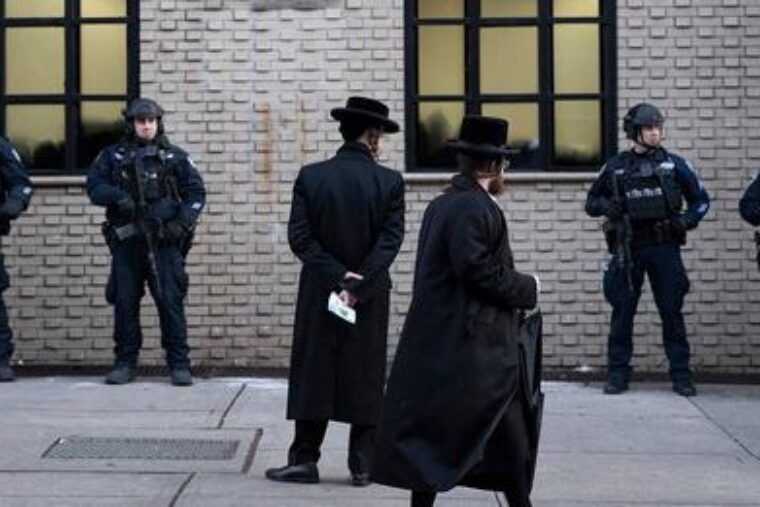Houses of worship can take several steps to harden their facilities against attack—but ultimately, security cannot be left solely to the professionals.
All houses of worship strive to be warm and welcoming, but they must also keep everyone safe. Today’s heightened anti-Semitism makes the balancing act more challenging for synagogues. What steps should Jewish leaders take to protect their congregations?
First, secure buildings. In 2019, after anti-Semitic attacks in Pennsylvania, California, New Jersey, and New York, the United Jewish Appeal–Federation of New York and the Jewish Community Relations Council’s New York chapter announced the “community security initiative” (CSI)—a comprehensive program to enhance safety for regional Jewish institutions. (I serve as a senior advisor.) Offering vulnerability assessments, training, and help in winning government grants, CSI’s team works closely with institutional leadership to identify the best ways to harden their facilities against attacks.
Every building is different, but CSI’s recommendations follow straightforward principles. Only identified and authorized people should enter, and buildings need secure perimeters. Any intruder entering a Jewish facility poses a risk. People jiggling doorknobs and checking windows might want only to steal the pushke (charity box), but their intentions can be far worse. CSI gauges whether a facility can delay or deny an intruder and recommends upgrades when needed. Could someone break in via a shabby door, or lob a dangerous object through a window?
By David M. Pollock



